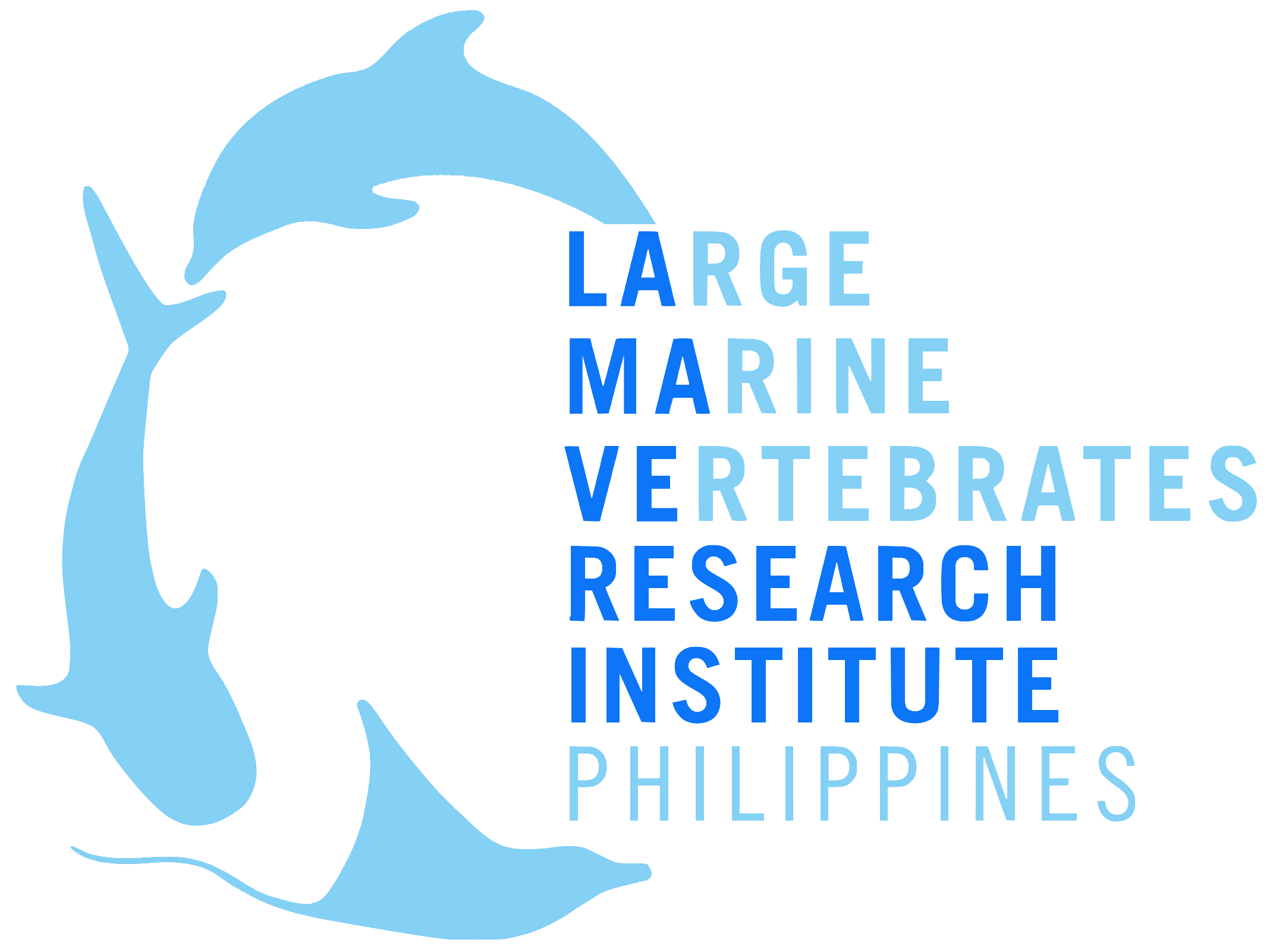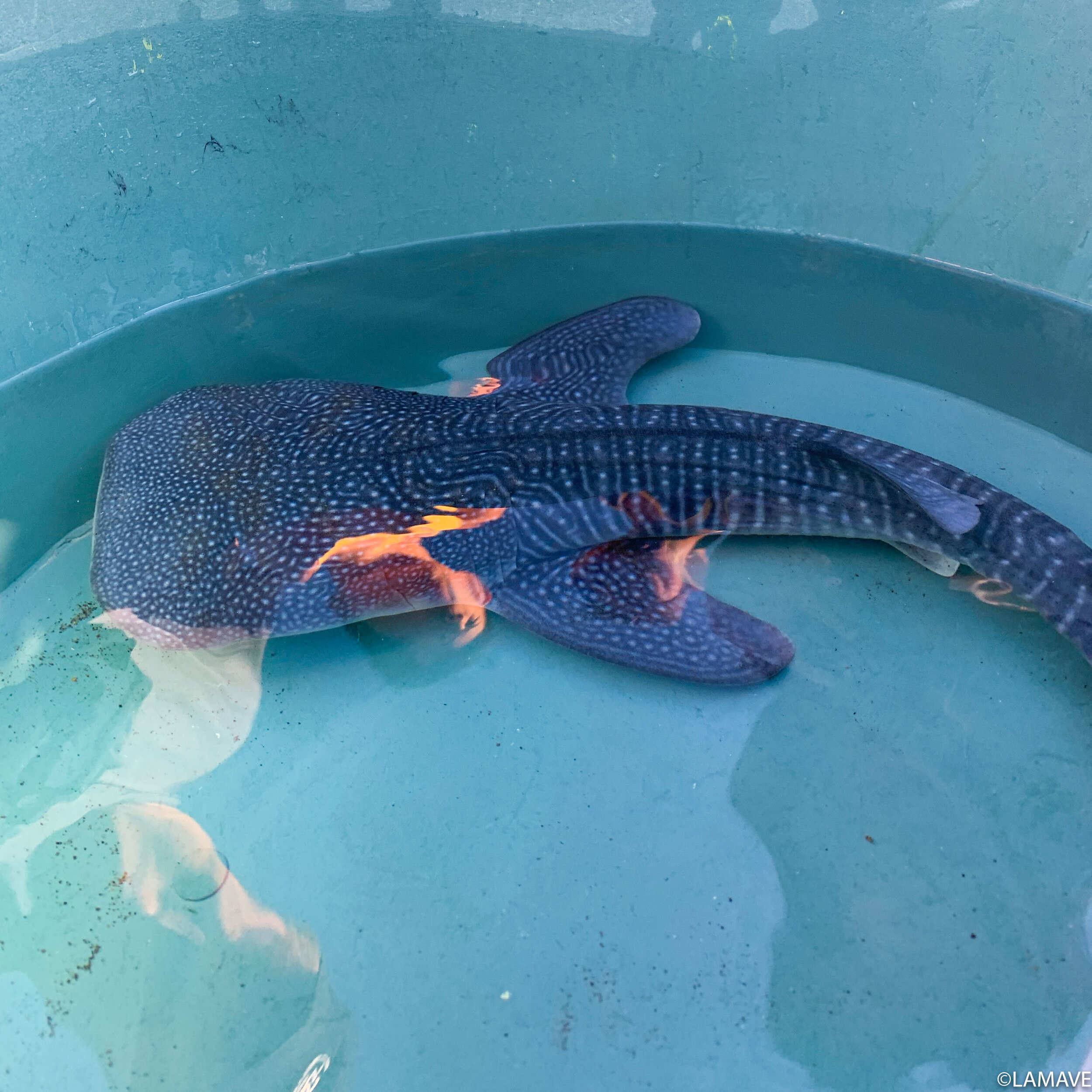Press Release
Baby whale shark discovery indicates Donsol and the Ticao-Burias Pass are important reproductive habitats for the endangered whale shark
Philippines. 14 December, 2020, A new scientific publication from LAMAVE and BFAR Region 5 reports the importance of Donsol and the Ticao-Burias Pass as a likely pupping ground and nursery area for the endangered whale shark.
The study reports the discovery of a newly born whale shark found on March 15, 2020 as well as mating-like behaviour displayed by whale sharks witnessed by researchers and reported by local whale shark tourism guides (Butanding Interaction Officers). The team concludes that these findings paired with previous reports of neonate (newborn) whale sharks within the area, as well as the globally rare co-occurrence of adult males and females, strongly suggests that Donsol and the Ticao-Burias Pass is an important reproductive habitat for the world’s largest fish.
On March 15, 2020 a free-swimming neonate whale shark was found in the shallow waters of Donsol by a member of staff from the Donsol Tourism Office. Researchers from LAMAVE identified the whale shark as a male, and measuring 60 cm – this is smaller than the largest embryo (64 cm) reported in the only investigation of a pregnant female in Taiwan in the 1990s, indicating that this individual must be a new born. Given their poor at-birth swimming abilities, it is likely that neonates remain fairly close to their birthing grounds, thus indicating Donsol and the Ticao-Burias Pass to be an important pupping ground and nursery area. It is the third neonate recorded in the area and it was the 1930th individual whale shark to be identified in the Philippines.
The team from Large Marine Vertebrates Research Institute Philippines, who have been conducting research in Donsol since 2015 also underline the value of local ecological knowledge of the Butanding Interaction Officers (BIOs), who have, on occasion, reported mating-like behaviour by whale sharks where one individual was observed swimming below a second whale shark with its ventral side up. LAMAVE researchers also observed a large male whale shark lowering and ‘unfurling’ its claspers (male reproductive organs).
The Philippines is already a globally important area for whale sharks: the country’s waters host the second-largest known aggregation of whale sharks in the world. However, this new study suggests that for the first time the country, and specifically Donsol and the Ticao-Burias Pass, is a globally unique habitat for the whale shark and important for their reproduction. The continued protection of the area is paramount, and development within the area that may impact the species and/or the environment should be strictly regulated.
A Tagalog version of this Press Release is available HERE.
Notes to Editors:
The study by Miranda et al., titled ‘Donsol: an important reproductive habitat for the world’s largest fish Rhincodon typus?’ is published in the Journal of Fish Biology and is available here: https://onlinelibrary.wiley.com/doi/10.1111/jfb.14610
Video available here: https://youtu.be/CxSCS3IWoGI
A copy of this press release is available to download HERE.
For more information or to arrange an interview please contact Sally Snow, email: s.snow[at]lamave.org +639772055794. Photos are available upon request.
Large Marine Vertebrates Research Institute Philippines (LAMAVE) is the largest independent non- profit non-governmental organization dedicated to the conservation of marine megafauna and their habitats in the Philippines. LAMAVE strives for conservation through scientific research, policy and education. For more information visit: www.lamave.org | Facebook | Instagram | Twitter.






